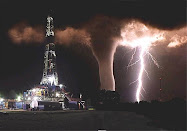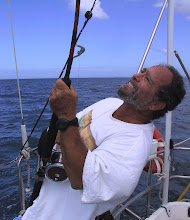Guest Blog by Noted SF Author Steve McEllistrem
What does it mean to be human?
We like to think we’re special, we’re different than the rest of the animal kingdom. We can reason and communicate and imagine and empathize and manipulate our world in a way no other creatures can. We have consciousness, self-awareness. All these attributes allegedly make us human.
But what does that mean?
Other animals, like dolphins and elephants, are self-aware. They communicate and reason and empathize and even occasionally manipulate their habitat. Do they imagine? Probably. So what makes us special?
The truth is: We make us special. We’re special because we say we’re special, not because of any inherent quality or virtue we possess. We observe the world around us and note that no other species does quite what we do, even though many species do similar things.
And up until relatively recently, we didn’t even appreciate the similarities that other creatures have to us. We thought: Isn’t it cute that the crow over there is playing with a coin? or Look at my cat toying with that mouse.
But the more we’ve studied the animal kingdom, the more we’ve come to appreciate how little difference there is between humans and many animals. We have an evolutionary advantage in that we developed all these wonderful abilities at a high level whereas most animals can claim only one or two of these attributes.
Dogs, for example, can communicate, empathize and reason, but not to the same level and not in the same way we do. At least, that’s what we think. But we might be wrong.
Dogs can communicate by sense of smell in addition to vocally but we didn’t understand that until recently. For instance, dogs can tell time by using their noses. They know that when the number of “owner” molecules in the air decrease to a certain level, their owner is going to return. That’s why they’re often waiting by the door when we come home from work.
Monkeys have a sense of justice and will scream in outrage if they’re treated unfairly. No different than us. Deer and cows can sense magnetic north; dolphins and bats use sonar; people can’t do either of those things.
So why do we think we’re better than them? Mostly, because we have power over them. It’s not that different than white privilege or Nazi superiority. If you look at the historical record, you see that the people claiming whites were somehow better than blacks were white people. The blacks didn’t think of themselves as inferior. It was the people who had the power who made that determination.
The same thing is happening still, with the folks in power (humans) claiming that they’re superior to the folks not in power (animals). Yes, humans are different than zebras, but zebras are different than ostriches and ostriches are different than pumas. We all have our strengths and our weaknesses. It’s just that our strengths tend to be stronger than the rest of the world’s creatures and our weaknesses tend to be fewer.
So it’s okay to think of yourself as human. It’s okay to see yourself as a member of the dominant species on the planet. But I’m not certain it’s okay to think of ourselves as inherently superior to the creatures around us. We’re different, that’s all.
_________________
Note from Kenn Brody:
Steve McEllistrem is a noted SF author whose “Devereaux” series covers themes of post human and trans human development, opposed by devastating forces that almost wipe us out. He is also a futurist who writes on forthcoming trends and technologies.
The opinions in this issue are entirely Steve’s.
We welcome feedback. Email to Kenn@brokensymmetrypublishing.com. The first hundred email responders will get a free copy of “The Sage of Sagittarius” in ebook form.
http://smarturl.it/DECtg




No comments:
Post a Comment